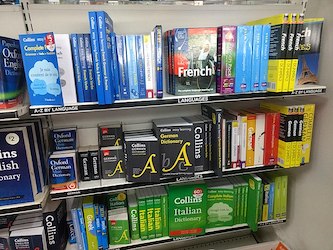A company in the UK made a smart tool to help people who work with laws. This tool can look at papers with rules and make them better by itself. It learns from many other papers to do this. Soon, some people will try it to see if it works well. Next year, more people can use it. This tool can do work very fast, so people don’t have to spend a lot of time on it.
One time, they showed how the tool can talk to another tool to agree on rules in a paper. It did this very quickly. The tool helps people do their work faster and not wait for other people to check the papers. But some people who work with laws think that people still need to look at the papers because computers might not understand everything. They say that even with smart tools, people who know a lot about laws are still important.
Original news source: Can AI cut humans out of contract negotiations? (BBC)
Listen
Slow
Normal
Fast
Group or Classroom Activities
Warm-up Activities:
– Vocabulary Pictionary
Instructions: Write down key terms from the article such as “smart tool,” “laws,” “papers,” “rules,” and “computers” on individual pieces of paper. Divide the class into two teams. One student from each team will draw the term they picked without writing words or speaking, while their teammates try to guess the word within a time limit. This will help students learn and remember new vocabulary from the article.
– News Reporter Role-play
Instructions: Pair up students and assign them the roles of a news reporter and an expert on the new smart tool mentioned in the article. The reporter will ask questions about how the tool works, its benefits, and potential concerns. The expert will answer based on information from the article. This will encourage speaking practice and comprehension of the article’s content.
– Think-Pair-Share
Instructions: Ask each student to think of one thing they learned about the smart tool from the article, then pair up with a classmate and share their thoughts. After sharing with each other, a few pairs can present their thoughts to the entire class. This activity encourages reading comprehension and speaking practice.
– Keyword Hangman
Instructions: Play the classic game of hangman using keywords from the article, such as “improve,” “automatically,” “trial,” “efficient,” and “essential.” This will reinforce vocabulary and spelling in a fun and interactive way.
– Opinion Poll
Instructions: Conduct a class poll asking whether students think smart tools like the one described in the article will be good or bad for people working with laws. Students can raise their hands to vote, and then you can ask volunteers to explain their choice in simple terms. This activity will engage students in critical thinking and allow them to practice expressing their opinions in English.
Comprehension Questions:
1. What did the company in the UK make?
2. What does the smart tool do with papers?
3. How does the tool learn to make papers better?
4. When will some people try the tool?
5. How fast can the tool do work?
6. What did the tool do with another tool one time?
7. Why do some people think that humans still need to look at the papers?
Go to answers ⇩
Listen and Fill in the Gaps:
A company in the UK made a smart tool to help people who work with laws. This tool can (1)______ at papers with rules and make them better by itself. It learns from many (2)______ papers to do this. Soon, some people will try it to see if it works well. (3)______ year, more people can use it. This tool can do work very fast, so people don’t have to (4)______ a lot of time on it.
One time, they showed how the tool can talk to another tool to (5)______ on (6)______ in a paper. It did this very quickly. The tool helps people do their work faster and not wait for other people to check the papers. But some people who work with laws think that people still need to look at the (7)______ because computers might not understand everything. They say that even with smart tools, people who (8)______ a lot about laws are still important.
Go to answers ⇩
Discussion Questions:
Students can ask a partner these questions, or discuss them as a group.
1. What is a tool?
2. Do you like using tools to help you work? Why or why not?
3. How would you feel if a tool could do your homework?
4. What is a smart tool?
5. Do you think smart tools are good? Why?
6. Have you ever seen a computer do something by itself? What did it do?
7. Do you think computers are fast? Why or why not?
8. How do you feel when you have to wait a long time for something?
9. Do you think people are better than computers at some jobs? Which jobs?
10. What is a law?
11. Do you think it’s important for people to check on computers? Why?
12. Can you think of a job where you don’t need a computer? What is it?
Individual Activities
Vocabulary Meanings:
Match each word to its meaning.
Words:
1. tool
2. laws
3. papers
4. rules
5. learn
6. people
7. work
8. computers
Meanings:
(a) Machines that can do tasks automatically
(b) Things that you must follow
(c) Sheets with writing on them
(d) To get knowledge about something
(e) Something that helps you do things
(f) Something you do to get money
(g) Things you must obey
(h) A group of persons
Go to answers ⇩
Multiple Choice Questions:
1. What did a company in the UK make to help people who work with laws?
(a) A smart tool
(b) A toy
(c) A book
(d) A car
2. How does the smart tool make papers better?
(a) It talks to people
(b) It plays music
(c) It makes drawings
(d) It learns from many other papers
3. What will some people do to see if the smart tool works well?
(a) Ignore it
(b) Break it
(c) Eat it
(d) Try it
4. Why can the smart tool do work very fast?
(a) Because it is a smart tool
(b) Because it is very big
(c) Because it is very old
(d) Because it is very colorful
5. What did the smart tool do very quickly with another tool?
(a) Danced
(b) Ate lunch
(c) Talked to agree on rules in a paper
(d) Played a game
6. What do some people who work with laws think is still important, even with smart tools?
(a) Computers
(b) Animals
(c) People who know a lot about laws
(d) Trees
7. Why do some people think that people still need to look at the papers?
(a) Because they like to look at papers
(b) Because computers might not understand everything
(c) Because they have nothing else to do
(d) Because they don’t like smart tools
8. What do some people think is important, even with smart tools?
(a) People who don’t know anything about laws
(b) People who know a lot about laws
(c) People who like to dance
(d) People who like to sing
Go to answers ⇩
True or False Questions:
1. No one will try the tool soon to see if it works well.
2. It does not learn from any other papers to do this.
3. Some people who work with laws think that people still need to look at the papers because computers might not understand everything.
4. The tool cannot look at papers with rules and make them better by itself.
5. The tool can talk to another tool to agree on rules in a paper.
6. A company in the UK did not make a smart tool to help people who work with laws.
7. Even with smart tools, people who know a lot about laws are still important.
8. Next year, more people can use the tool.
Go to answers ⇩
Write a Summary:
Write a summary of this news article in two sentences.
Check your writing now with the best free AI for English writing!
Writing Questions:
Answer the following questions. Write as much as you can for each answer.
Check your answers with our free English writing assistant!
1. What did the company in the UK make?
2. What can the smart tool do with papers?
3. How does the smart tool learn to make papers better?
4. Why do people like the smart tool?
5. Do people still need to check the papers? Why or why not?
Answers
Comprehension Question Answers:
1. What did the company in the UK make?
The company made a smart tool to help with laws.
2. What does the smart tool do with papers?
The smart tool makes the papers with rules better by itself.
3. How does the tool learn to make papers better?
The tool learns by looking at many other papers.
4. When will some people try the tool?
Some people will try the tool soon.
5. How fast can the tool do work?
The tool can do work very fast.
6. What did the tool do with another tool one time?
The tool talked to another tool to agree on rules in a paper very quickly.
7. Why do some people think that humans still need to look at the papers?
Some people think humans need to look at the papers because computers might not understand everything.
Go back to questions ⇧
Listen and Fill in the Gaps Answers:
(1) look
(2) other
(3) Next
(4) spend
(5) agree
(6) rules
(7) papers
(8) know
Go back to questions ⇧
Vocabulary Meanings Answers:
1. tool
Answer: (e) Something that helps you do things
2. laws
Answer: (b) Things that you must follow
3. papers
Answer: (c) Sheets with writing on them
4. rules
Answer: (g) Things you must obey
5. learn
Answer: (d) To get knowledge about something
6. people
Answer: (h) A group of persons
7. work
Answer: (f) Something you do to get money
8. computers
Answer: (a) Machines that can do tasks automatically
Go back to questions ⇧
Multiple Choice Answers:
1. What did a company in the UK make to help people who work with laws?
Answer: (a) A smart tool
2. How does the smart tool make papers better?
Answer: (d) It learns from many other papers
3. What will some people do to see if the smart tool works well?
Answer: (d) Try it
4. Why can the smart tool do work very fast?
Answer: (a) Because it is a smart tool
5. What did the smart tool do very quickly with another tool?
Answer: (c) Talked to agree on rules in a paper
6. What do some people who work with laws think is still important, even with smart tools?
Answer: (c) People who know a lot about laws
7. Why do some people think that people still need to look at the papers?
Answer: (b) Because computers might not understand everything
8. What do some people think is important, even with smart tools?
Answer: (b) People who know a lot about laws
Go back to questions ⇧
True or False Answers:
1. No one will try the tool soon to see if it works well. (Answer: False)
2. It does not learn from any other papers to do this. (Answer: False)
3. Some people who work with laws think that people still need to look at the papers because computers might not understand everything. (Answer: True)
4. The tool cannot look at papers with rules and make them better by itself. (Answer: False)
5. The tool can talk to another tool to agree on rules in a paper. (Answer: True)
6. A company in the UK did not make a smart tool to help people who work with laws. (Answer: False)
7. Even with smart tools, people who know a lot about laws are still important. (Answer: True)
8. Next year, more people can use the tool. (Answer: True)
Go back to questions ⇧















